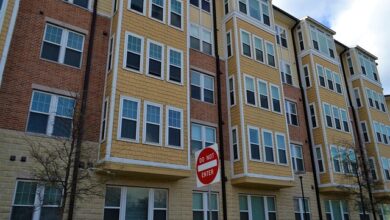Cost of Raising Children in the Netherlands

The Netherlands is often regarded as one of the best countries in the world to raise children, thanks to its family-friendly policies, excellent healthcare system, and high quality of life. However, raising children in the Netherlands does come with costs, and understanding these expenses can help parents plan effectively. From childcare and education to housing and extracurricular activities, here’s a detailed breakdown of the costs associated with raising children in the Netherlands.
1. Childcare Costs
Childcare is one of the most significant expenses for families with young children, especially if both parents work.
a. Daycare (Kinderopvang)
- Cost: On average, daycare costs between €6 and €9 per hour , depending on the provider and location.
- Subsidies: The Dutch government offers a childcare allowance (kinderopvangtoeslag) to reduce costs for eligible families. Depending on your income, you may receive up to 80–90% reimbursement.
- Full-Time Care: For full-time daycare (45 hours/week), families might pay around €270–€400 per week before subsidies.
b. After-School Care (BSO)
- Cost: After-school care for primary school children typically ranges from €5 to €8 per hour .
- Subsidies: Similar to daycare, BSO costs are partially covered by the childcare allowance.
c. Babysitters and Au Pairs
- Hiring a babysitter or au pair can be an alternative for occasional or live-in care. Rates vary but generally start at €10–€15 per hour .
2. Education Costs
Education in the Netherlands is relatively affordable compared to many other countries, particularly for public schools.
a. Preschool (Peuterspeelzaal and Kinderdagverblijf)
- Preschools for children aged 2–4 are not mandatory but widely used. Costs range from €500 to €800 per month , though subsidies may apply.
b. Primary and Secondary Education
- Public schools are funded by the government and charge minimal fees (approximately €100–€300 per year ) for materials and activities.
- Private and international schools are significantly more expensive, with annual tuition ranging from €5,000 to €20,000+ .
c. University and Higher Education
- For EU/EEA students, tuition at public universities is approximately €2,209 per year (as of 2023). Non-EU students pay higher fees, often exceeding €10,000 annually .
- Scholarships and student loans are available to help offset costs.
3. Healthcare Costs
The Dutch healthcare system is renowned for its quality, and children benefit from comprehensive coverage.
a. Health Insurance
- Every resident, including children, must have basic health insurance. Monthly premiums for children are typically included in the family policy, averaging €120–€150 per month for the household.
- Additional dental coverage for children under 18 is free until age 18, after which parents may need to purchase supplemental plans.
b. Routine Medical Care
- Most routine check-ups and vaccinations are covered under basic insurance. Co-pays for doctor visits and prescriptions are minimal.
4. Housing Costs
Housing is one of the largest expenses for families in the Netherlands.
a. Renting vs. Buying
- Renting: Average monthly rent for a three-bedroom apartment in cities like Amsterdam or Utrecht ranges from €1,500 to €2,500 . Outside major cities, rents are lower, averaging €1,000–€1,500 .
- Buying: Purchasing a home requires a substantial down payment (typically 20%) and ongoing mortgage payments. Prices vary widely by region, with urban areas being more expensive.
b. Utilities and Maintenance
- Utilities (electricity, water, heating) cost approximately €150–€250 per month for a family home.
- Maintenance and renovations should also be factored into long-term budgets.
5. Food and Daily Expenses
Feeding a family in the Netherlands is relatively affordable, especially if you shop at budget-friendly supermarkets.
a. Groceries
- Monthly grocery bills for a family of four range from €400 to €600 , depending on dietary preferences and shopping habits.
- Budget chains like Lidl , Aldi , and Jumbo offer competitive prices.
b. Clothing and Essentials
- Children’s clothing is reasonably priced, especially at discount stores like HEMA, C&A, and Action. Annual spending on clothing and shoes might range from €300 to €600 per child .
c. Transportation
- Public transport costs for children are subsidized. Kids under 4 travel free, while those aged 4–11 pay reduced fares (around €0.50–€1 per trip ).
- Cycling is a popular and cost-effective mode of transport for families.
6. Extracurricular Activities
Enrolling children in sports, music lessons, or other activities adds to the overall cost of raising them.
a. Sports Clubs
- Membership fees for sports clubs (soccer, swimming, gymnastics, etc.) typically range from €100 to €300 per year , plus additional costs for equipment or uniforms.
b. Music Lessons
- Private music lessons cost about €20–€40 per hour . Group classes or school programs may be cheaper.
c. Summer Camps and Activities
- Summer camps or holiday programs can cost €100–€300 per week , depending on the type of activity and duration.
7. Government Support and Benefits
The Dutch government provides several allowances and benefits to ease the financial burden of raising children.
a. Child Benefit (Kinderbijslag)
- Parents receive a monthly child benefit for each child:
- €250–€300 per month for children aged 0–5.
- €300–€350 per month for children aged 6–11.
- €350–€400 per month for children aged 12 and above.
b. Parental Leave Allowance
- New parents are entitled to parental leave, during which they can receive a portion of their salary through social security contributions.
c. School Allowance (Schoolkostenbijdrage)
- Low-income families may qualify for a school allowance to cover expenses like books and school trips.
8. Miscellaneous Costs
Other expenses to consider include:
a. Birthday Parties
- Hosting birthday parties for children can cost €100–€300 , depending on the venue and activities.
b. Holidays and Travel
- Family vacations within Europe typically cost €500–€1,500 per person , depending on the destination and accommodation.
c. Technology and Gadgets
- Tablets, smartphones, and gaming consoles add to the overall expense, with costs ranging from €200 to €500+ per device.
9. Estimated Total Costs
While individual circumstances vary, here’s a rough estimate of the annual cost of raising a child in the Netherlands:
| Expense Category | Annual Cost (Approx.) |
|---|---|
| Childcare | €5,000–€10,000 |
| Education | €200–€1,000 |
| Healthcare | €1,000–€1,500 |
| Housing | €12,000–€25,000 |
| Food | €4,800–€7,200 |
| Clothing | €300–€600 |
| Extracurricular Activities | €500–€1,500 |
| Miscellaneous | €500–€1,000 |
| Total | €24,300–€47,800 |
(Note: This excludes government benefits like child allowance.)
10. Tips for Managing Costs
- Take Advantage of Subsidies: Apply for all available government benefits, such as childcare allowance and child benefit.
- Shop Smart: Use budget supermarkets and second-hand stores for clothing and toys.
- Plan Ahead: Save for future expenses like university tuition or summer camps.
- Use Public Transport: Encourage cycling and public transit to save on transportation costs.


